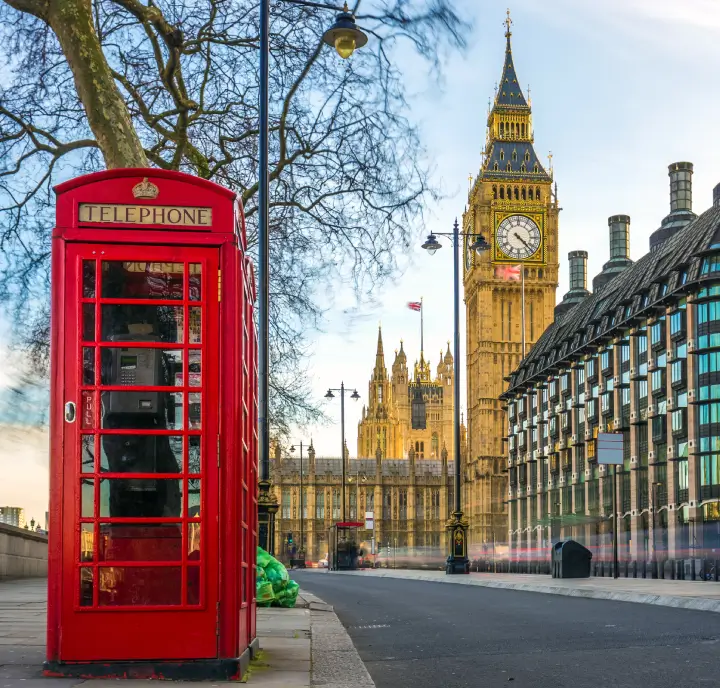Monday - Friday: 9:30am - 5:30pm
Domestic Violence Solicitors
Our experienced team of domestic violence solicitors help individuals who feel vulnerable or under-threat from their partner.
Monday - Friday: 9:30am - 5:30pm
Our experienced team of domestic violence solicitors help individuals who feel vulnerable or under-threat from their partner.
Everyone has the right to live without fear from physical abuse or harassment. At Josiah-Lake Gardiner, our expert domestic violence lawyers advise clients on how the law can offer protection through injunction orders and non-molestation orders. We will help to protect your personal safety and always ensure all matters are dealt with in the strictest confidence.
To book an initial consultation with our expert domestic violence solicitors in London, simply call 020 3709 8975 or complete our online enquiry form.
The family home can be a violent and unsafe environment for some families whether married or unmarried, homosexual or heterosexual. Domestic violence can occur in middle class households just as much as in working class ones. It can touch all communities, all races and all ages. Even after a couple separate, violence may still occur. Depending on the effects of an assault, criminal and/or civil remedies may be available to the victim.
As reported by Pat Strickland and Grahame Allen in their Briefing paper on Domestic Violence in England and Wales, some 7% of women and 4.4% of men were estimated to have experienced domestic abuse in 2015/16, equivalent to an estimated 1.2 million female and 651,000 male victims. Further, the Crown Prosecution Service (CPS) in its Violence against Women and Girls crime report recorded that in 2015/16, there were 117,882 domestic violence cases referred to the CPS by the police, an increase of 29% from 2009/10.
In the Autumn of 2013, the government issued a new definition of ‘domestic abuse’ to include ‘any incident or pattern of incidents of controlling, coercive or threatening behaviour, violence or abuse between those aged 16 or over who are or have been intimate partners or family members regardless of gender or sexuality.
This can encompass but is not limited to, psychological, physical, sexual, financial, or emotional abuse. Domestic abuse also includes culturally specific forms of abuse including but not limited to forced marriage, honour-based violence, dowry-related abuse and transnational marriage abandonment’.
Controlling behaviour is a range of acts designed to make a person dependent by isolating them from sources of support, exploiting their resources and capacity for personal gain, depriving them of the means for independence, and regulating their everyday behaviour.
Coercive behaviour is a continuing act or a pattern of acts of assault, threats, humiliation and intimidation or other abuse that is used to harm, punish or frighten the victim.
It bears reiterating that not all types of domestic abuse are clearly obvious. Some perpetrators may use violence towards a partner, but the pain inflicted can be emotional and psychological as well and just as insidious. Bruises can fade over time but the psychological and emotional damage can last years.
Psychological damage is hidden even deeper. The damage done by a violent abuser is not only to the victim but also to any family members such as children forced to witness the violence or its aftermath. It isn’t always easy for someone on the outside to spot the signs of domestic violence if they are not confronted with someone who does not present themselves as battered and bruised, physically or emotionally.
Victims may feel that they cannot turn to anyone for support, not even members of the family, their GP or the police. They are isolated and alone. They may not have any financial independence and so are reliant wholeheartedly on the abuser. They may have been led for many years to believe that they somehow ‘deserve’ the abuse and are to blame for it.
Domestic violence can start in small ways – a victim distancing themselves from friends and family, stopping work and losing contact with colleagues, no longer willing to meet up socially may be signs of them being isolated from their support system. Equally, it could just be that they may have had a child and are focusing on being a good parent and in no hurry to return to their previous life or work.
Someone who once was full of life and who has become withdrawn may be concealing a secret of abuse, but equally the secret could be post-natal depression.
So, whilst the signs may not be obvious, the response should be. If someone reveals that they are being subjected to any form of domestic abuse, controlling or coercive behaviour, believe them and offer as much help as you can.
Yes, depending on the nature of the domestic abuse. There is no specific criminal offence of domestic violence or domestic abuse; rather there are a number of possible offences for which perpetrators can be prosecuted, including rape, assault, threatening behaviour and coercive behaviour.
In respect of the new offence of controlling or coercive behaviour, the behaviour complained of must have had a serious effect on the victim. Namely that it has caused the victim to fear violence will be used against them on ‘at least two occasions’ or it has had a ‘substantial adverse effect on the victim’s day to day activities’.
The alleged perpetrator must have known that their behaviour would have a serious effect on the victim or the behaviour must have been such that he or she ‘ought to have known’ it would have had that effect. The controlling or coercive behaviour does not relate to one single incident but to a purposeful pattern of behaviour which takes place over time in order for the perpetrator to exert power, control or coercion over the victim.
Yes, this would fall within the definition of ‘unreasonable behaviour’, one of the facts that would need to be evidenced in support of a petition for divorce or dissolution.
Often the most urgent need of a victim of domestic violence is a safe place to live, whether permanently or temporarily, until court orders affording some protection against violence or abuse can be obtained. Some victims choose to leave the family home in order to seek a form of refuge elsewhere.
Others are reluctant to go and stay with relatives or friends as these are likely to be the violent partner’s first port of call on discovering that they have fled the home. If you and your abusive partner are living in his or her parents’ home with his or her family, then whilst orders might be available for your protection it may be better to move out.
However, whenever and wherever possible the victim should not further be victimised by being forced to flee their home and every effort should be made to ensure that the violent partner is the one that is removed and then forbidden from returning to the family home.
Part IV of the Family Law Act 1996 provides the simplest method by which a victim of domestic abuse is able to obtain protection from assault, threats and molestation against a partner through Non-Molestation Orders and Occupation Orders.
The aim of a Non-Molestation Order is to restrain a party from molesting the applicant or any relevant child. There is no definition of ‘molestation’ contained in the Act, but in C v C (Non-Molestation Order: Jurisdiction) [1998] 1 FCR 11, the then President of the Family Division, Sir Stephen Brown, stated that ‘molestation implies some quite deliberate conduct which is aimed at a high degree of harassment of the other party so as to justify the intervention of the court’.
Occupation Orders are made to:
A Non-Molestation Order may be made ‘for a specified period or until further order’. Commonly such orders are made for 12 months although shorter periods of even three or six months are possible having regard to how long the protection is realistically required for.
Occupation orders can also be made for a specific period or until a further event or further order. However, where the applicant has an entitlement to occupy the family home and the home was intended to be their family home, the exclusion of the perpetrator/abuser can be for an indefinite period; otherwise, a maximum period of six months would apply.
Domestic violence or abuse is never acceptable and there is no good reason why children should be required to live in an environment of fear and violence. Depending on the length and nature of the domestic abuse and what the children may have been exposed to, it may be that the child or children may benefit from some form of counselling or therapy to deal with what they may have witnessed and internalised even if they are not equipped with the words to fully explain what impact this has had on them.
This is in no way to imply that there should be any blame attached to the victim of violence who was for a long time unable to leave a violent or abusive partner. It is not easy to leave an abusive relationship and for some the very real fear of reprisals for leaving can be paralysing. Many times a victim truly believes that they have shielded their children from the worst effects of the violence. It must be remembered that domestic violence and abuse touches the entire family and therefore that the whole family need help and support.
Our expert team of domestic violence solicitors will help you to navigate the emotional and oftentimes scary process of taking back control from an abusive partner, mindful always of the effect the violence and abuse may have had on all members of the family, with particular emphasis on the emotional impact on any children of the family.
We, at Josiah-Lake Gardiner, will guide you through the process of obtaining a civil remedy by way of a non-molestation or occupation order. No two cases are the same, just as no two relationships are the same and no two abusers are the same. We will fully explain the procedure at the outset of the case and will keep you updated at every stage.
It may be that we will be able to secure an out of court agreement for your abusive partner to leave the family home, but if you need the further protection of a power of arrest or if we cannot agree out of court, in which case you would have to go to court, you need to be sure that you have the best domestic violence lawyers on your side. In this regard, we have, for a number of years, been recognised as one of the UK’s leading Family Law firms by the independent legal guide The Legal 500.








